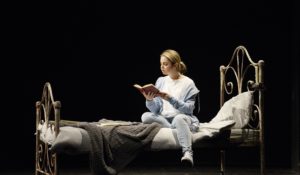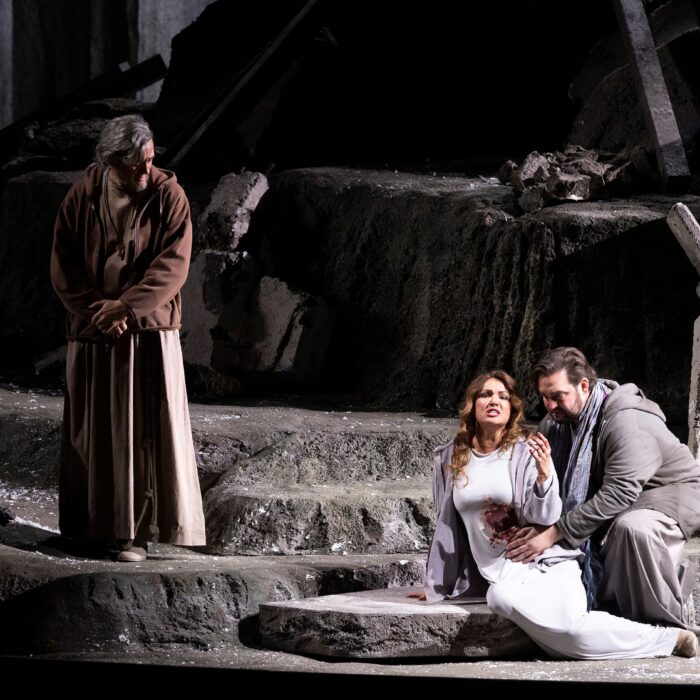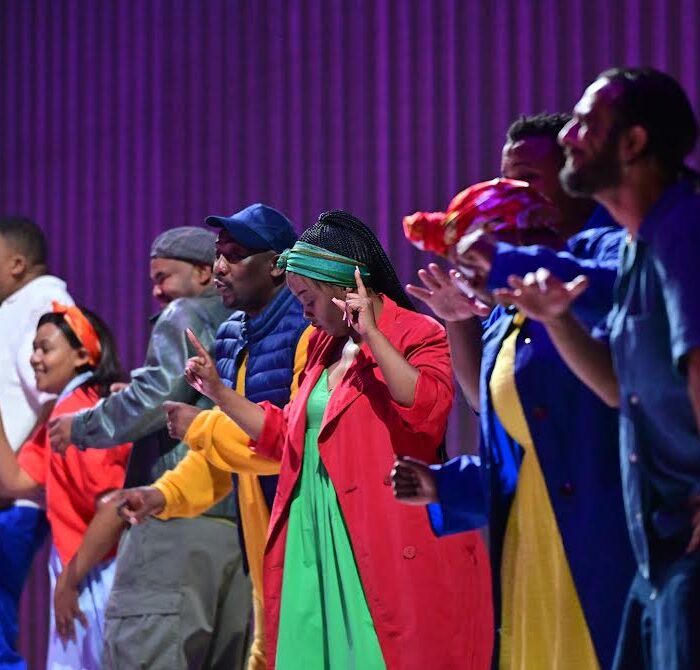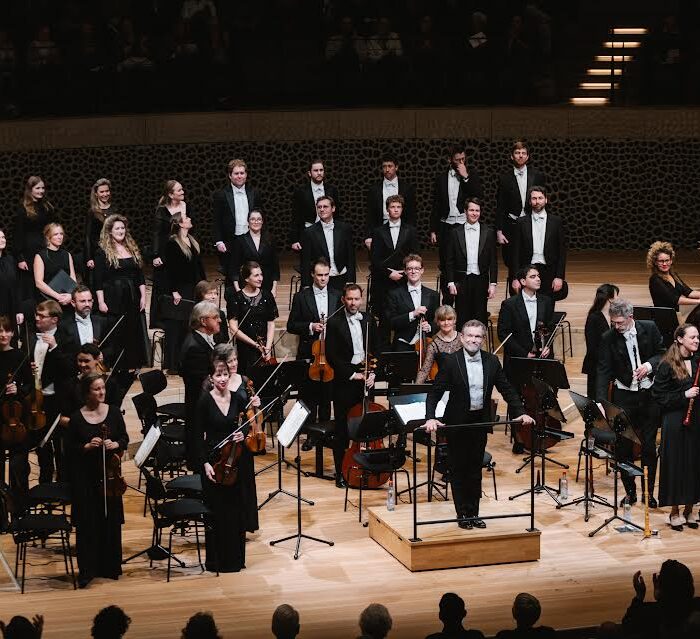
Wexford Festival Opera 2022 Review: Cinderella
The Young Singers From The Wexford Factory Bring Deutscher’s Fairy Tale Opera Alive
By Alan Neilson(Photo: Padraig Grant)
One of the attractions for the young singers participating in Wexford Festival Opera’s Factory program is the chance to perform on the main stage in an opera in front of a large audience. Last year, they starred in a very successful production of Bellini’s “I Capuleti e i Montecchi” which featured such artists as Jade Phoenix and Anna Brady, whose careers have since gone on to blossom.
This year, the Factory’s new intake of young singers presented four performances of Alma Deutscher’s opera “Cinderella.”
The young composer, still only 17 years of age, made headlines with her first opera, “The Sweeper of Dreams,” when it premiered in Israel when she was only eight years old. In 2016, her second opera, “Cinderella,” received its premiere in Vienna to loud acclaim, and has since gone on to receive performances across the globe.
However, the possibility of seeing a performance of “Cinderella” can conjure a mixture of feelings. Obviously, with support from the likes of Zubin Mehta and Simon Rattle, the quality of her music is almost beyond doubt, and the idea of listening to the work of a prodigy is certainly intriguing. On the other hand, “Cinderella” is a well-known fairy tale of extremely limited interest to many serious-minded people. Is another work on the same subject really necessary? Also, given that she wrote her own libretto, the question that immediately comes to mind is: did she really have the skill to craft a dramatically sharp text? After all, many excellent writers have attempted libretti and fallen short.
Cinderella In A New Context
On reading the synopsis, it came as a surprise to find that Deutscher had convincingly reimagined the story by setting it in an opera house. Cinderella is a young, gifted composer who has been consigned to the dull work of a copyist. The Ugly Sisters are singers of limited talent who see themselves as would-be divas. The Prince is a poet, which does not impress the court at all. After Cinderella flees the palace, the Prince searches for her, using one of her melodies to identify her. Eventually, Cinderella’s melody is united with the Prince’s poetry, and all live happily ever after.
Not only is the idea fairly imaginative, but its theatrical context means there is plenty of scope for the development of metatheatrical fun and games, with the possibility for adding a further layer to the presentation.
Nevertheless, the characters rarely rise above the stereotypical and display little in the way of depth or development, which may have upset some in the audience who had expected a little bit more. On the other hand, fairy tales are, in the main, aimed at children, in which the use of stereotypes plays an important role in capturing their interest and allowing them to follow the storyline. And there were plenty of children in the audience, and they were completely entranced by the performance.
The stage direction was encharged to Davide Gasparro, who was supported by set designer Eleonora Rossi, costume designer Frances White, and lighting designer Daisy Long. It was a very simple staging. The sets were not particularly ornate, nor were they particularly imaginative, but they did their job in providing a background against which the tale could be played out.
However, Long’s use of strong contrasting shades of light stood out as being particularly effective in providing the right atmospheric context as the drama progressed. Gasparro’s coaching of the singers was equally accomplished, ensuring that the young cast all produced convincing performances.
Musical Beauty
When asked about her music, Deutscher replied, “If the world is so ugly, then what’s the point of making it even uglier with ugly music.” This could stand as her credo; the entire score of “Cinderella” is littered with pleasing, easily accessible melodies, which often possess a Viennese flavor. Yet the music is contemporary, it is not backward-looking, bland, banal or superficial. The music has quality, and it is dramatically attuned to the narrative.
For the performances at the Wexford Festival Opera, the full orchestral score was rearranged for a chamber orchestra by Giuseppe Montesano. The conductor Andrew Synnott produced a light, fresh and sparkling performance that really caught the magical spirit of the work.
Soprano Megan O’Neill made a fabulous Cinderella. She sang and acted out the part in an uninhibited, fresh and lively manner, which captured the fairy tale spirit. She possesses a bright, attractive, versatile voice, which she used to skillfully spin out pleasing lines and sparkling passages of coloratura.
Soprano Corina Ignat cast as the obnoxious Stepmother was excellent. Everything she did or sang was nasty; even her phrasing sounded vicious, and her high notes seemed to be deliberately crafted to make you feel uncomfortable. She was totally unlikable and, therefore, totally successful.
The Ugly Sisters were played by soprano Leah Redmond as Griselda and mezzo-soprano Sarah Luttrell as Zibaldona. They complimented each other brilliantly as they paraded preposterously around the stage, bullying Cinderella and each other as they attempted to dominate the scene. Their efforts at finishing the Prince’s melody were amusingly awful. Both produced strong, animated vocal performances. Luttrell’s ability to color the voice was particularly successful.
The tenor Michael Bell produced a strong performance as the Prince, managing to portray him without any character at all beyond the stereotype: charming, ardent and courteous but without a distinct personality, and it worked well. He possesses a sweet voice, which he used to deliver a lyrical and engaging performance.
Bass Peter Lidbetter produced a confident, clearly defined performance as the King, which he hammed up to good effect. His voice possesses a pleasing tone with a suitable air of authority.
Mezzo-soprano Deirdre Arratoon, in the relatively small role of the Fairy, flitted on and off the stage and made a good impression with her clearly sung contribution.
The cast was completed by Peter McCamley who played the spoken role of the King’s Minister, for which he provided a well-characterized, clearly articulated portrait.
It is obviously not an opera to fit everyone’s tastes. It is a fairy tale, presented unambiguously as a fairy tale, even if the context has been slightly altered. Personally, it is not something I would go to again. Once is enough; its subject is just too light and sentimental to sustain the interest, but that is inevitable: it is Cinderella! One cannot help but be impressed by Deutscher’s music, but it is music written to meet the demands of the drama, and its sentimentality bleeds into the score.
Overall, however, it was a complete success! Why? Well, because the children simply loved it, and the adults seemed to enjoy it too.



